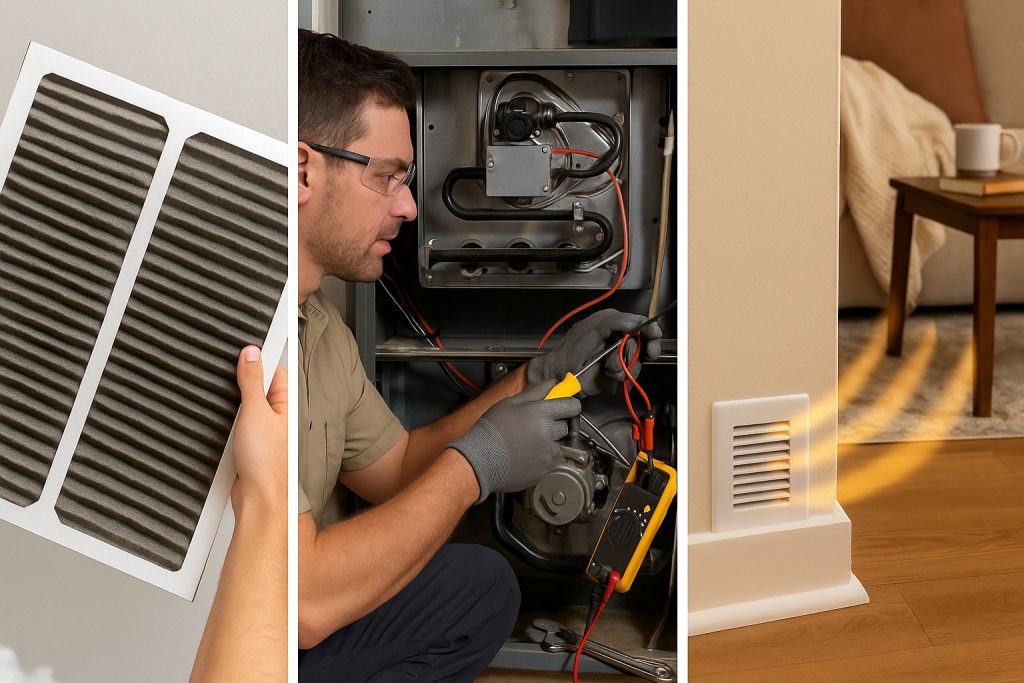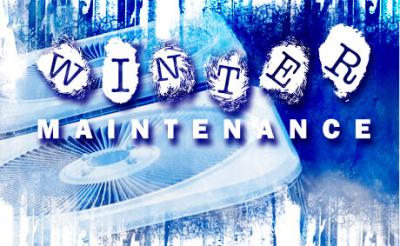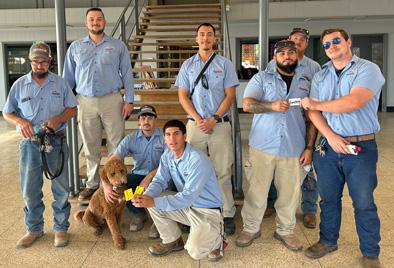Introduction
Winters in Roswell, NM, can be harsh—and a well-maintained heater isn’t just a convenience, it’s a necessity. It’s important for homeowners to schedule regular maintenance to ensure their heating system lasts for many years and operates efficiently. Water heater replacement is also an important part of home maintenance, especially as systems age and approach the end of their typical lifespan, which is often around 10 to 15 years. New Mexico requires a permit for furnace installations, which must be handled by a licensed HVAC company, followed by a city inspection. It’s essential to hire a licensed professional for heater replacement or maintenance to ensure the job is done safely and correctly. Remember, granting permission for service providers to provide necessary heater replacement or maintenance services is crucial; declining such service can result in reduced system efficiency, safety risks, or even voided warranties. HVAC technicians and contractors in New Mexico are required to be state-licensed, ensuring that all work meets safety and efficiency standards. When replacing a heater in Albuquerque, NM, considerations include choosing a system suited for the high desert climate, maximizing energy efficiency, and hiring a licensed local contractor. Additionally, standard gas furnaces must be adjusted for altitude when installed in Albuquerque due to the city’s elevation of over 5,300 feet. As a proud, family-owned business since 1964, Fulkerson Services knows firsthand the value of a reliable heating system in keeping our community safe, warm, and comfortable. Use this comprehensive checklist to help keep your heater running efficiently, curb energy costs, and extend its lifespan. If your unit is outdated, watch for signs you need a heater replacement. Ready for peace of mind? Reach out now for a free estimate or schedule your Comfort Service Plan visit.

Essential Heater Maintenance Checklist for Homeowners
Replace or Clean Filters
A clean filter is your heater’s first line of defense against inefficiency. Dirty filters restrict airflow and force your system to work harder, driving up energy use. Be sure to replace disposable filters or wash reusable ones every 1–3 months during the heating season to maximize performance and indoor air quality.
Inspect and Clean Vents
Walk through your home and check each vent and register. Dust, debris, and pet hair can easily build up, reducing airflow and circulating allergens. Use a vacuum with a hose attachment to remove buildup and ensure air can flow freely through your system. Also, don’t forget about cleaning your fireplace before winter to avoid safety hazards and improve efficiency.
Check the Thermostat
Test your thermostat to ensure it’s reading and responding accurately. If it seems off or outdated, consider upgrading to a programmable or smart thermostat. These models help optimize energy use and keep your home consistently comfortable with minimal manual adjustments. An efficient heating system typically has an Annual Fuel Utilization Efficiency (AFUE) rating of 90% or higher, which can significantly reduce energy costs over time. In contrast, older heating systems may have AFUE ratings as low as 60%, wasting a significant amount of energy and driving up utility bills. Heat pumps are efficient for both heating and cooling and work well in New Mexico’s climate zones, often supplemented by a gas furnace for very cold days.
Professional Heater Maintenance Tasks You Shouldn’t DIY
Examine Electrical Connections
Electrical issues can lead to poor performance or even hazardous situations. Our licensed technicians inspect, tighten, and test all wiring and voltage levels to ensure everything is running safely and efficiently.
Lubricate Moving Parts
Moving components like motors and fans need proper lubrication to function smoothly. Without it, friction builds up and causes early wear or overheating. We apply the right lubricant in the right places to keep your system humming quietly and efficiently.
Inspect the Heat Exchanger
Your heat exchanger plays a crucial role in heating your home. Even small cracks or corrosion can allow carbon monoxide to leak into your living space. Our team thoroughly inspects this part to make sure your home stays safe.
Test Safety Controls
Your system’s built-in safety controls are vital in preventing overheating, shutdowns, and dangerous conditions. These controls are specifically designed to ensure safe operation and prevent hazards. We rigorously test each control mechanism to ensure it responds properly when needed.
Clean the Blower Assembly
Dust and debris can easily accumulate on the blower, restricting airflow and reducing efficiency. A professional cleaning not only improves airflow but also helps reduce strain on the entire system.
Check Gas Lines and Pressure (Gas Heaters)
Proper gas pressure and secure connections are essential for safety and system performance. We carefully inspect all gas lines for leaks, corrosion, or irregularities and make sure your system is properly pressurized. These inspections and installations take place at the specific location of your water heater or heating system. We’ll verify your setup is tight, safe, and efficient. If you’re considering an upgrade, a heat pump investment this season could also boost efficiency and year-round comfort.
If you have a natural gas water heater, it’s especially important to inspect the gas line when you install a new unit or replace an old one, as proper installation and connection are key to both safety and efficiency. When replacing a tank water heater, it is necessary to drain the old tank before removal to prevent spills and facilitate safe installation.
Inspect Ductwork
Ductwork is a critical but often overlooked component of your HVAC system. Leaky, disconnected, or poorly insulated ducts can lead to significant heat loss, causing your heater to work overtime and driving up energy bills. A licensed HVAC professional must perform a load calculation for proper system sizing based on home specifics such as square footage and insulation. Our expert team inspects every inch of your ductwork, identifying leaks, sealing gaps, and ensuring proper insulation to restore full efficiency and improve indoor comfort throughout your home.
Consider Upgrading to Energy Efficient Systems
If your heater is over 15 years old or frequently requires repairs, it may be time to consider replacing it with a new energy efficient model. Modern heaters and water heaters use advanced technology to deliver more heat using less energy, significantly lowering your energy bills. For example, ENERGY STAR certified gas furnaces and high-efficiency tankless water heaters can save homeowners substantial money over time. Additionally, upgrading your system can qualify you for rebates or incentives from local utility companies, such as the New Mexico Gas Company, which offers instant rebates for installing high-efficiency gas furnaces.
Plan for Proper Heater and Water Heater Sizing
Choosing the right size heater and water heater is essential for optimal performance and efficiency. An oversized unit wastes energy and shortens equipment life, while an undersized unit struggles to meet your home’s heating needs. Licensed HVAC professionals perform load calculations considering factors such as home size, insulation, and climate to recommend the best system size. This step ensures your heater replacement or water heater replacement delivers consistent comfort while operating efficiently.
Common Questions About Heater Maintenance in Roswell, NM
Q: How often should I schedule maintenance?
We recommend at least once a year before winter—but older or heavily used systems may benefit from biannual service, especially through our Comfort Service Plan. As your water heater ages, more frequent maintenance can help extend its lifespan and delay the need for replacement. Most water heaters last 10 to 12 years, so regular check-ups are essential to ensure optimal performance and to plan for eventual replacement.
Q: What can I do myself?
You can comfortably replace filters, clear vents, and manage the thermostat. Homeowners can find helpful posts and information online about water heater maintenance, and reading guides can help you decide which tasks to tackle yourself and which to leave to a licensed plumber. But tasks involving gas, electricity, or internal parts should be entrusted to a licensed professional.
Q: Does maintenance truly extend my heater’s life?
Absolutely. Routine maintenance reduces wear and tear, prevents breakdowns, and keeps your system operating reliably year after year. For example, if you flush and drain a tank water heater regularly, you can add several years to its lifespan.
Q: What does service cost in Roswell?
While prices vary by system and service scope. The cost difference between repair and replacement can be significant, especially if your unit is older or needs frequent repairs. Some plumbers offer financing options or monthly plans to help homeowners manage the cost of a new water heater installation. You also have the option to pay a low fee each month for ongoing water heater replacement or maintenance services. A new furnace installation in Albuquerque can cost between $3,800 and over $10,000, depending on efficiency, size, and fuel type.
Q: What’s the risk of skipping maintenance?
Negligence leads to reduced efficiency, higher energy costs, shorter system life, and even safety issues like carbon monoxide leaks. Failing to maintain or repair your water heater can cause it to use more energy, increase your bills, and may require a new water heater installation sooner than expected—costing you more money in the long run.
Q: How do I choose the right type and size of water heater?
Here is a list of water heater types to consider: tank, tankless, or heat pump. It’s important to select the right type and size of water heater based on your household’s hot water needs. Consider energy efficiency, fuel source, and available space. A properly sized and energy efficient unit will deliver reliable hot water, save money on utility bills, and last longer. Modern water heaters have higher energy efficiency ratings than older models, making them a smart choice for long-term savings. Higher efficiency units save money on utility bills in the long run and are labeled with ENERGY STAR and high efficiency ratings.
Q: When should a water heater be replaced instead of repaired?
If your water heater unit is over 10-12 years old, frequently needs to be repaired, or no longer provides enough hot water, it may be time for a replacement. Signs like leaks from the tank, rust-colored water, or rising energy bills indicate the end of the system’s lifespan. In these cases, replacing the unit is often more cost-effective and reliable than continued repairs. Additionally, a noisy water heater may indicate sediment buildup and could lead to damage, signaling the need for replacement.
Routine maintenance doesn’t just keep your heater running—it helps save money by keeping your system energy efficient and can boost its efficiency by as much as 25%. An energy efficient system uses less energy, saving you more money over time. An inefficient heater, on the other hand, can cost up to five times more to operate than a modern efficient model. That means lower utility bills, less strain on your system, and more consistent comfort throughout your home. It’s a smart investment that pays off every winter.
Did You Know?
Routine maintenance doesn’t just keep your heater running—it can boost its efficiency by as much as 25%. That means lower utility bills, less strain on your system, and more consistent comfort throughout your home. It’s a smart investment that pays off every winter.
Final Thoughts: Safeguard Your Home with Routine Heater Maintenance
An effective heater maintenance routine ensures safety, comfort, and efficiency. At Fulkerson Services, we’ve been keeping Roswell families warm for generations—with free estimates, transparent pricing, and a Comfort Service Plan that’s tailored to your needs. Don’t leave comfort—or safety—to chance.
Contact us today to schedule your service or join our Comfort Service Plan for year-round peace of mind.


